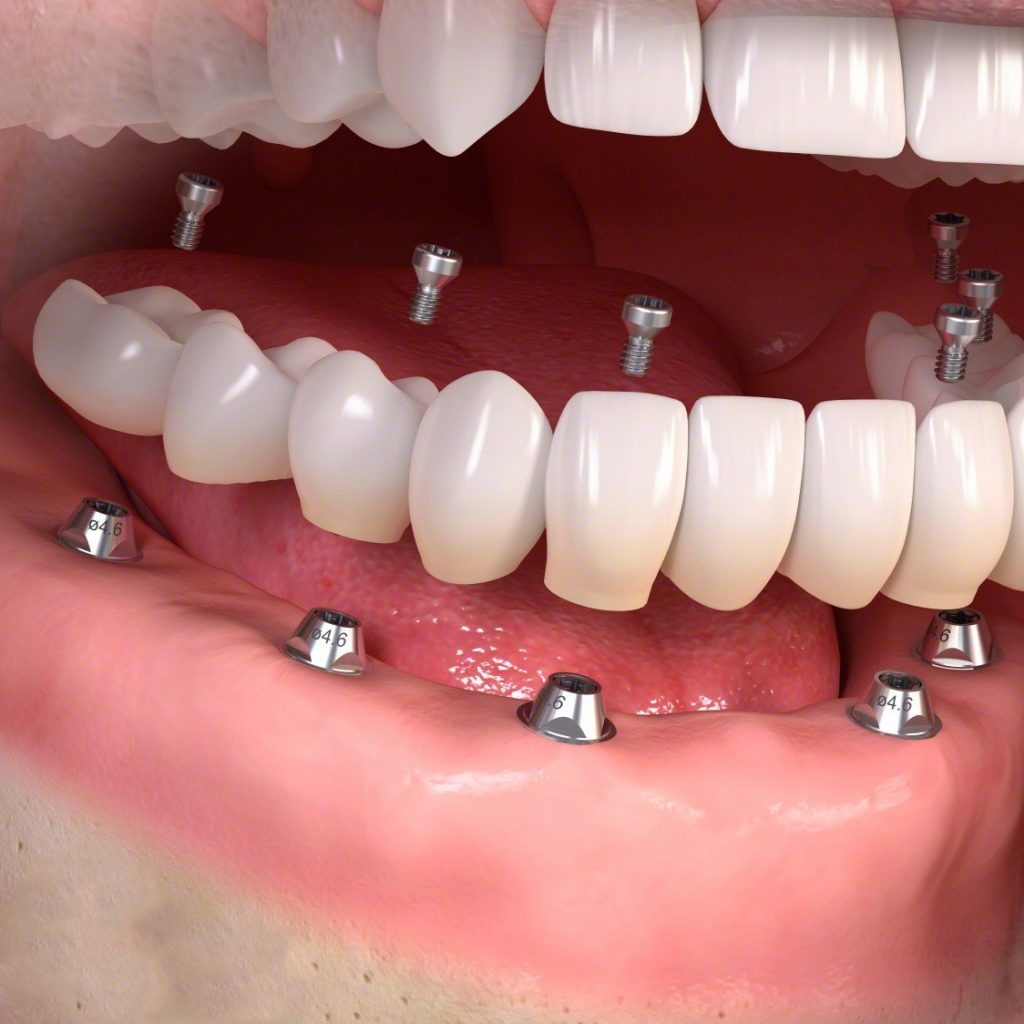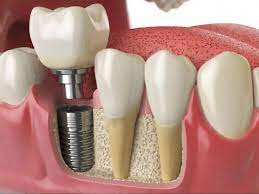
Dental Implants: What Are They For?
Today, a tooth is only as useful as its ability to support the weight of your bite. Your teeth don’t just keep food in your mouth — they play an essential role in chewing and speaking, too. If this weren’t the case, we would have trouble eating our dinner or speaking at length with each other. A tooth that is missing can leave you feeling incomplete and vulnerable. But if you’re missing one tooth or several and are looking for a way to regain some of your lost functionality, you might consider getting dental implants instead. Dental implants are artificial replacement teeth that integrate seamlessly into your jawbone to restore the appearance of your smile and better support your bite.
Did you know that a very small number of people of the same age have missing teeth? What rarely, rarely do I pay attention to the fact that this is a serious problem! Deficiencies remaining without the need to maintain until the bone disappears, then it is necessary to rebuild the jaw bone. In order not to support it, take care to fill in the gaps. Update to be supplemented with additions as part of Implanty Poznań services.
What Are Dental Implants?
Dental implants are artificial replacement teeth that are surgically placed into the jawbone on either side of the missing tooth. The implants are titanium posts that are surgically anchored into the bone using a special surgical glue. Over time, the implants become natural part of your jawbone and healthy enough to support a full set of teeth. The implants also provide a foundation for crowns and bridges to be attached. Once the mouth is healed and the bone has had time to fuse together, you can have your dental implants restored to their full function. Dental implants come in several different types and styles, each with unique benefits and disadvantages. You’ll most commonly see two different types of dental implants: fusion and fixed. In fusion dental implants, the posts are made of a titanium alloy. This type of implant is a good option for patients with bone loss or poor bone quality. The posts are designed to fuse with the jawbone over time.
How Do Dental Implants Work?
Dental implants are artificial replacement teeth that are surgically placed into the jawbone on either side of the missing tooth. The implants are titanium posts that are surgically anchored into the bone using a special surgical glue. Over time, the implants become natural part of your jawbone and healthy enough to support a full set of teeth. The implants also provide a foundation for crowns and bridges to be attached. You may have questions about how dental implants work, so let’s explore some of the benefits and drawbacks of dental implants. Crowns, bridges, and implants all share one thing in common: they’re all used to replace a missing tooth. Unlike a bridge, which only temporarily holds two teeth in place, a dental implant provides the structural stability necessary for a permanent replacement.
Pros of Dental Implants
– Permanent Replacement – Unlike bridges and crowns, which are only temporary solutions that come with a risk of falling out, your dental implants can last for the rest of your life. They’ll provide you with a sense of security and, as time goes on, you may even be able to forget you even have implants! – No Implants, No Problem – Implants look great, but what’s the point if you can’t smile? That’s why it’s important to consider your facial structure when choosing the best type of implant. Fused dental implants, which are designed to fuse with your jawbone over time, are the most commonly used type. – Improved Speech – As previously mentioned, your smile is important, but it’s also related to speech. That’s because your bite affects the way you’re able to talk. Without teeth to properly support your bite, you’ll have to change how you talk (and eat and drink) in order to continue talking. – Greater Self-Esteem – Have you ever seen those commercials where the person talks about how their missing tooth affects the way they feel about themselves? Sure, some of those people are exaggerated, but that doesn’t mean the rest of us aren’t impacted by our smile. – Better Social Interaction – Your smile is part of who you are, and that makes it important to others. You don’t want others to judge you for something that can be changed, and dental implants are a great way to change your smile to make you feel better about who you are. – No Food Allergies – What happens when you’re at dinner with friends and you forget what they ordered because they don’t have a picture of your smile? Or, you forget what they’re actually eating because you’re too busy thinking about how you’re chewing? – Longer Lifespan – The ability to chew and speak better leads to a longer lifespan, which could be a major plus for you as you get older.
Cons of Dental Implants
– Long Recovery Time – The mouth is a very complicated part of the body, and Dental Implant Surgery is no exception. Therefore, it takes time to recover from the surgery and healing process. With any surgery, there’s a risk of infection, and the longer you’re out of commission, the greater the risk of developing complications. – Potential for Injury – As previously mentioned, your bite affects how you speak and eat, but it also affects your safety. If you’re not careful when eating or drinking, you could injure yourself or others. – Potential for Toothache – If your dental implants aren’t fused with your jawbone, they could cause pain when you’re chewing on hard food. – Extended Treatment Time – Like the recovery time, the time it takes to restore your dental implants will depend on your individual case. That said, it can take time for your bone to fully fuse together, and you may experience some pain while your jaw is healing.
Final Words: Is a Dental Implant for You?
Dental implants are designed to restore your smile and provide a more stable platform for teeth. They work by being surgically implanted into your jawbone, similar to the way a tooth is positioned. In some cases, the bone has been completely worn down and has lost its ability to support your bite. In these instances, dental implants can replace a missing tooth and provide you with a more stable bite. Dental implants are often recommended for people who have lost teeth, have had teeth removed because of decay, or have had periodontal disease. They can dramatically improve your quality of life by enabling you to: – Chew more food (since they support your bite) – Speak more (since they provide a more stable bite) – Drink from a straw (since they don’t get in the way) – Smile again (since they restore your bite)
Is a Dental Implant for You?
If you’ve considered dental implants and are ready to get started, we invite you to visit our New Patient Center. You’ll meet with one of our experienced dentists who can help you choose the best dental implant for your unique needs. We’ll also walk you through the process of scheduling your consultation and making your dental implant appointment. If you’re ready to get started, call us at (888) 884-5100 to set up your appointment today! The decision to get dental implants is a big one, and it’s important to do your research. Both the pros and cons will help you decide if this is the right step for you. If you’re ready to take the next step toward restoring your smile, call (888) 884-5100 to set up your consultation today!




